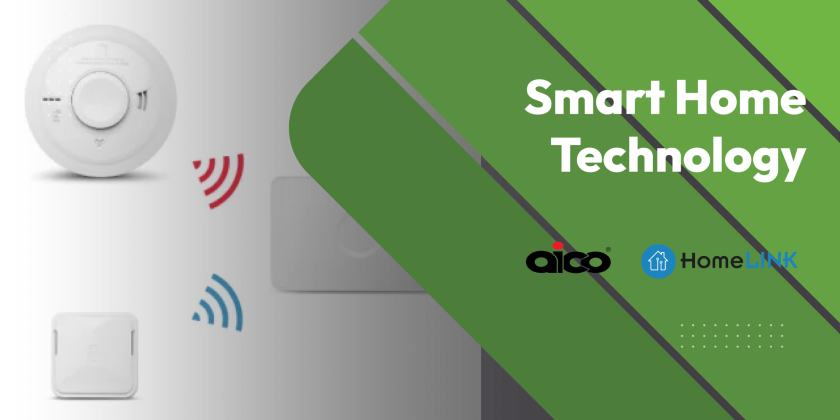The shift towards renewable energy has been gaining momentum in recent years, and solar panels have emerged as a popular choice for sustainable energy solutions in the UK. As the demand for solar panel installations increases, so does the need for skilled professionals who can carry out these installations effectively. For those looking to enter this burgeoning field, solar panel installation training offers a practical pathway to acquiring the necessary skills and knowledge. In this guide, we will explore the essentials of solar panel installation training in the UK, including what the training entails, the qualifications needed, and the potential career opportunities that await skilled installers. Whether you are just starting out or looking to enhance your skills, this guide will provide you with all the information you need to embark on a successful career in solar energy.
Understanding Solar Panel Basics
What Are Solar Panels?
Solar panels, also known as photovoltaic (PV) panels, are devices that convert sunlight into electricity. They are made up of many solar cells, typically composed of silicon, which is a semiconductor material. When sunlight strikes these cells, it knocks electrons loose from their atoms and generates an electric current. This process is known as the photovoltaic effect. Solar panels are most commonly installed on rooftops or open spaces where they can receive maximum sunlight exposure. Their primary use is to provide a renewable, clean energy source that reduces reliance on fossil fuels. Over the years, advancements in technology have improved the efficiency and affordability of solar panels, making them a viable option for both residential and commercial energy needs. As the UK continues to embrace sustainable practices, the role of solar panels in reducing carbon emissions and promoting energy independence becomes increasingly significant.
Types of Solar Panels Available
There are several types of solar panels available, each with distinct characteristics and advantages. The most common types include monocrystalline, polycrystalline, and thin-film solar panels. Monocrystalline panels are made from a single, pure crystal structure and are known for their high efficiency and sleek appearance. They tend to be more expensive but offer better performance in limited space. Polycrystalline panels, on the other hand, are made from multiple silicon crystals, making them less efficient than monocrystalline panels but more affordable. They have a blue hue and are suitable for installations where space is not a constraint. Thin-film panels are made by depositing photovoltaic material onto a substrate, which allows them to be flexible and lightweight.
How Solar Panels Work
Solar panels function by converting sunlight into electricity through the photovoltaic effect. When solar panels are exposed to sunlight, the energy from the light particles, or photons, is absorbed by the solar cells. This energy excites electrons in the semiconductor material, typically silicon, causing them to move and create an electric current. This direct current (DC) flows through the solar cells and is collected by wiring within the panel. Most homes and businesses use alternating current (AC), so the DC produced by the solar panels is converted into AC by an inverter. This electricity can then be used to power electrical devices or fed into the national grid. Any excess energy generated can often be stored in batteries for later use, providing a reliable energy source even when the sun isn’t shining. Solar panels provide a sustainable and environmentally friendly way to harness the sun’s energy, reducing reliance on fossil fuels and decreasing carbon emissions.
Importance of Solar Panel Installation Training
Benefits of Formal Training
Formal training in solar panel installation offers numerous benefits that are crucial for both personal development and professional success. Firstly, it provides a comprehensive understanding of the technical aspects of solar technology, ensuring that installers are well-versed in the latest industry standards and practices. This knowledge is essential for performing installations safely and efficiently. Additionally, formal training often includes hands-on experience, allowing trainees to practise and refine their skills in real-world scenarios, which builds confidence and competence. Moreover, completing a recognised training programme can enhance employment prospects, as employers tend to favour candidates with verified qualifications. It also opens up opportunities for career advancement and specialisation in a rapidly growing sector. Furthermore, formal training often includes education on regulatory requirements and safety protocols, which are vital for legal compliance and risk management. Overall, formal training equips individuals with the expertise needed to excel in the dynamic field of solar energy.
Regulations and Compliance in the UK
In the UK, solar panel installations are subject to a range of regulations and compliance standards to ensure safety and efficiency. Installers must adhere to the Building Regulations, which cover structural safety, fire safety, and electrical safety. Additionally, installations generally require compliance with the Microgeneration Certification Scheme (MCS), which ensures that systems are installed to a high standard using approved products. This certification is often a prerequisite for customers wishing to benefit from financial incentives such as the Smart Export Guarantee. Furthermore, planning permissions may be required, especially for installations on listed buildings or in conservation areas. Installers must also be aware of health and safety regulations, particularly regarding working at heights and handling electrical components. Formal training programmes typically cover these regulatory requirements, equipping installers with the knowledge needed to ensure compliance. Staying informed about regulations is crucial for avoiding legal issues and ensuring customer satisfaction in the competitive solar industry.
Career Opportunities in Solar Installation
The solar installation sector in the UK offers a diverse range of career opportunities for those with the appropriate training and skills. As the demand for renewable energy solutions grows, so does the need for skilled professionals to install and maintain solar systems. Entry-level positions typically include roles such as solar panel installer or technician, where individuals can gain hands-on experience and further develop their expertise. With experience, there are opportunities to advance to supervisory or managerial positions, overseeing larger projects or managing installation teams. Additionally, experienced professionals may choose to specialise in areas such as system design, sales, or project management, each offering distinct paths for career progression. Some individuals may also opt to start their own businesses, capitalising on the growing market demand. Overall, the solar industry provides a promising career path with the potential for growth and development in a sector that is pivotal to achieving a sustainable future.
Choosing the Right Training Programme
Accredited Courses and Providers
Selecting an accredited course and reputable provider is crucial for quality training in solar panel installation. Accreditation ensures that the training meets industry standards and equips you with the skills employers value. In the UK, courses accredited by organisations such as City & Guilds, the National Inspection Council for Electrical Installation Contracting (NICEIC), or the Microgeneration Certification Scheme (MCS) are widely recognised. These courses typically cover essential topics such as system design, installation techniques, and safety protocols.
When choosing a provider, consider their reputation, the experience of instructors, and the facilities available for practical training. Look for courses that offer hands-on experience, as this is vital for gaining confidence and competence in real-world installations. Additionally, some programmes offer flexible learning options, such as part-time or online modules, which can be advantageous for balancing training with other commitments. Ultimately, an accredited course from a reputable provider enhances your career prospects in the growing solar industry.
Online Versus In-Person Training
When choosing a solar panel installation training programme, deciding between online and in-person formats is important. Online training offers flexibility, allowing you to learn at your own pace and fit study around other commitments. It’s often more convenient for those who cannot easily travel to a training centre. However, online courses may lack the practical, hands-on experience that in-person training provides, which is crucial for developing the technical skills needed in this field.
In-person training, on the other hand, usually involves direct interaction with instructors and peers, which can enhance learning through immediate feedback and collaboration. It also offers access to physical equipment and real-world scenarios, which are invaluable for mastering installation techniques. Some training providers offer a blended approach, combining online theory with in-person practical sessions. This can be an ideal solution, providing the best of both worlds. Ultimately, the choice depends on your learning style, schedule, and career goals.
Evaluating Course Content and Structure
When evaluating a solar panel installation training programme, scrutinising the course content and structure is essential. A comprehensive course should cover key topics such as photovoltaic principles, system design, installation techniques, electrical safety, and regulatory compliance. It should also provide insights into emerging technologies and industry trends.
Look for courses that balance theory with practical application, as hands-on experience is crucial for mastering installation skills. Practical modules should involve real-world scenarios, allowing you to apply the theoretical knowledge gained. Additionally, consider the course duration and whether it fits your schedule. Some courses offer intensive short-term learning, while others may extend over several weeks or months.
Assess the qualifications and experience of instructors, as well as the support provided throughout the course. This could include resources such as study materials or access to online forums for peer interaction. Ultimately, a well-structured course with robust content will equip you with the skills needed for a successful career in solar installation.
Essential Skills for Solar Installers
Technical Skills Required
Solar installers need a range of technical skills to effectively perform their role. A solid understanding of electrical systems is fundamental, as installers work with wiring, inverters, and electrical panels. Knowledge of photovoltaic technology and the ability to interpret technical drawings and specifications is also crucial. Installers must be proficient in using tools and equipment specific to solar panel installation, such as drills, saws, and measuring devices.
Moreover, problem-solving skills are essential for troubleshooting system issues and ensuring installations operate efficiently. Familiarity with safety protocols is vital to prevent accidents, especially when working at heights or with electrical components. Additionally, being up-to-date with industry regulations and standards, such as those set by the Microgeneration Certification Scheme (MCS), is important for legal compliance and quality assurance. Overall, a combination of technical expertise and attention to detail is necessary to succeed in this field and provide reliable solar solutions.
Safety and Best Practices
In solar panel installation, adhering to safety and best practices is paramount. Installers must prioritise safety to prevent accidents and ensure the longevity of installations. This involves wearing appropriate personal protective equipment (PPE) such as helmets, gloves, and harnesses, especially when working at heights. Understanding electrical safety is critical, as installers regularly deal with live circuits and must avoid electrical hazards.
Best practices also include conducting thorough site assessments to identify potential risks and ensuring that all equipment is well-maintained and fit for use. Installers should follow manufacturer guidelines for installing solar panels and related components, as improper handling can lead to system inefficiencies or failures.
Regular training and staying informed about the latest safety protocols and technological advancements are essential for maintaining high standards. Additionally, clear communication with team members and clients ensures a smooth installation process and helps in managing expectations. By embedding safety and best practices into daily routines, solar installers can minimise risks and enhance the reliability of their work.
Customer Service and Communication
Effective customer service and communication are vital skills for solar installers. Installers interact with clients throughout the installation process, from initial consultations to post-installation support. Clear and concise communication helps in understanding customer needs and expectations, ensuring that installations meet their specific requirements.
Providing detailed explanations about the installation process, system functionality, and maintenance requirements is essential. This not only builds trust but also empowers customers to make informed decisions about their solar investments. Being approachable and patient is important, especially when addressing client concerns or questions.
Good customer service extends beyond technical knowledge; it involves professionalism, punctuality, and reliability. Installers should also be adept at managing customer expectations, particularly regarding timelines and potential disruptions during installation. By fostering positive client relationships through effective communication and service, solar installers can enhance customer satisfaction and build a strong reputation in the industry, which is crucial for securing referrals and repeat business.
Steps to Certification and Employment
Gaining Certification in the UK
Gaining certification is a crucial step for aspiring solar installers in the UK, as it validates their skills and enhances employability. To begin, candidates typically need to complete a recognised training programme in solar panel installation, such as those accredited by City & Guilds or the Microgeneration Certification Scheme (MCS). These programmes cover essential topics like photovoltaic theory, installation techniques, and safety standards.
After completing the training, candidates may need to pass assessments or exams to demonstrate their competence. Obtaining certification from the MCS is particularly important, as it signifies that the installer meets industry standards for quality and safety. This certification is often required for customers to access government incentives, making it a valuable credential for installers.
Additionally, installers should consider obtaining relevant health and safety certifications, which are critical for working safely and legally on job sites. By gaining the necessary certifications, installers position themselves for successful careers in the growing solar industry.
Building a Professional Portfolio
Building a professional portfolio is an effective way for solar installers to showcase their expertise and attract potential employers or clients. A well-organised portfolio highlights completed projects, illustrating the range and quality of work performed. Including photographs of installations, along with descriptions of the project scope and any challenges overcome, can provide valuable insights into an installer’s capabilities.
Additionally, the portfolio should feature any relevant certifications, training credentials, and testimonials from satisfied clients. These elements enhance credibility and demonstrate a commitment to professional development. For those just starting, volunteering on projects or collaborating with experienced installers can be a great way to gather material for a portfolio.
Digital portfolios are particularly useful in today’s job market, as they can easily be shared or linked to professional profiles on platforms such as LinkedIn. By continually updating the portfolio with new projects and achievements, installers can effectively market their skills and stay competitive in the rapidly evolving solar industry.
Networking and Job Hunting Tips
Networking plays a crucial role in securing employment in the solar industry. Building connections with industry professionals can open doors to job opportunities and provide valuable insights into market trends. Attending industry events, seminars, and trade shows is a great way to meet potential employers and peers. Engaging in discussions and sharing your own experiences can help establish your presence in the field.
Online platforms like LinkedIn are also valuable for networking. Joining relevant groups and participating in discussions can enhance your visibility. Additionally, following companies you are interested in can keep you informed about job openings and industry news.
When job hunting, tailor your CV and cover letter to highlight relevant skills and experience in solar installation. Be proactive in your search by reaching out to companies directly, even if they haven’t advertised openings. Volunteering or interning can also be beneficial, as it provides experience and demonstrates your commitment to the industry. Persistence and networking are key to finding opportunities in this competitive field.


